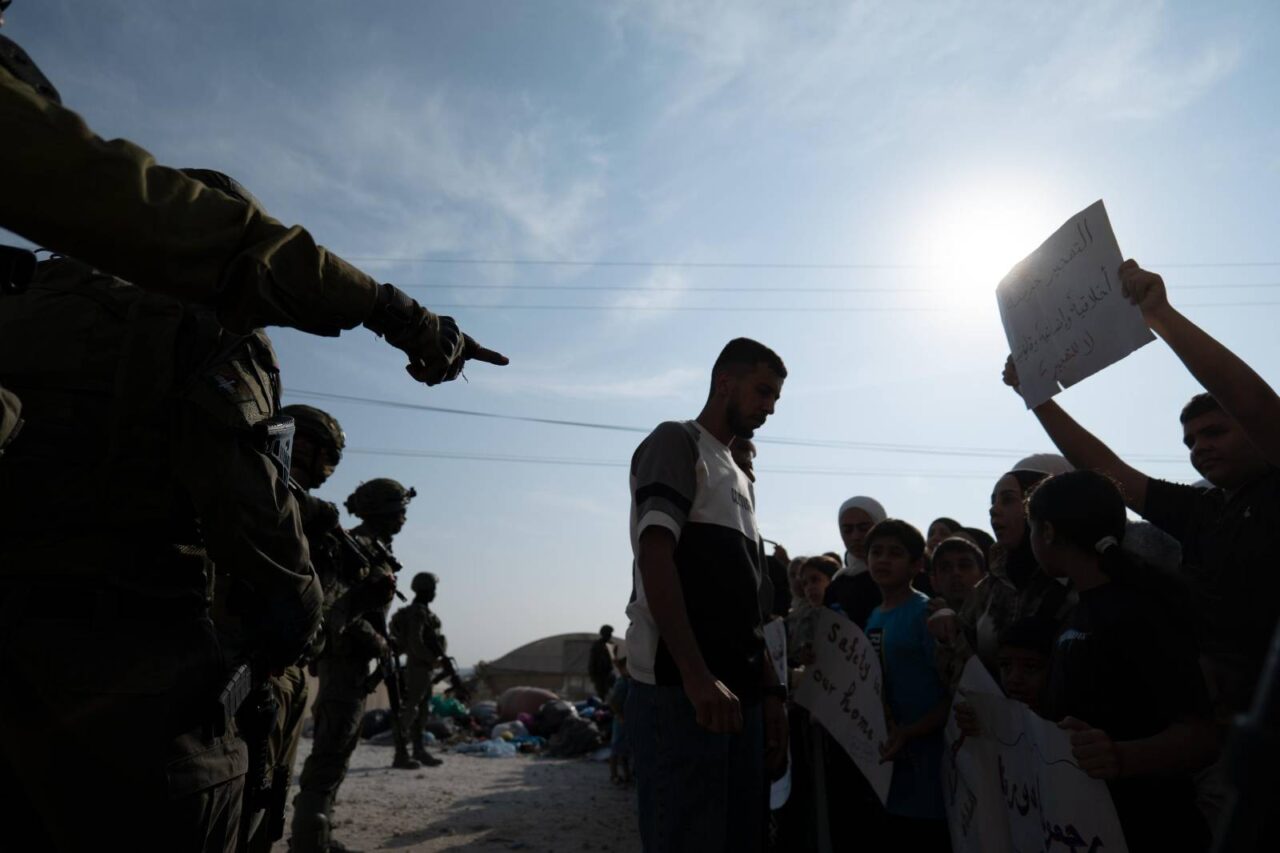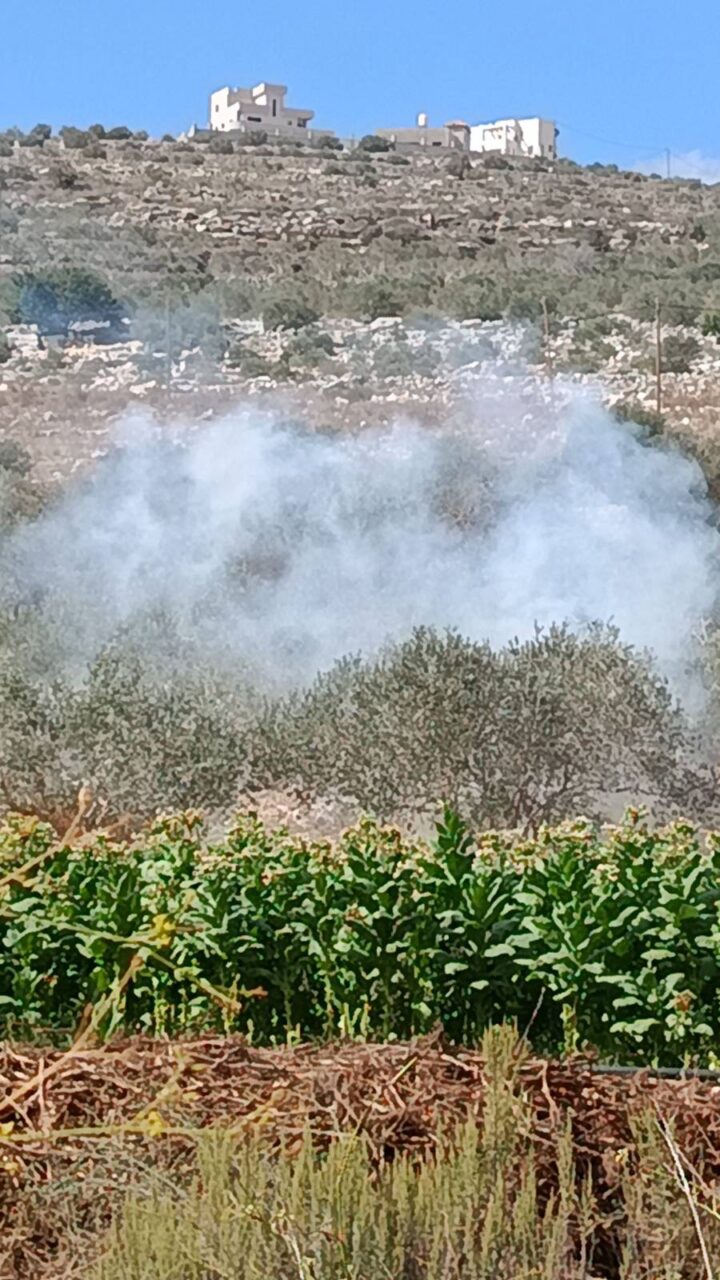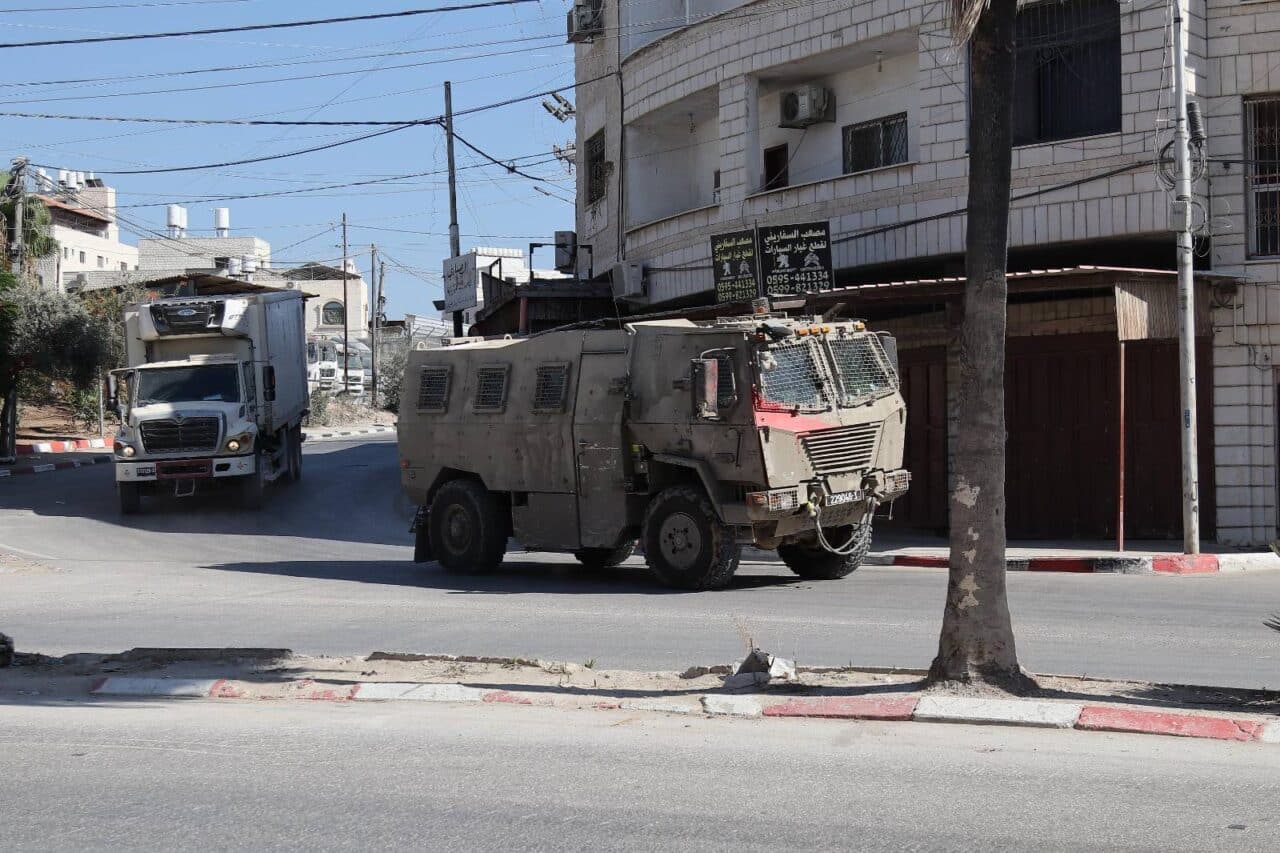Tag: Tulkarem
-

Palestinian Refugees and the Right of Return
By Diana khwaelid Nur Shams camp – Dozens of Palestinians peacefully demonstrated to demand the return to their homes in the Nur Shams camp. Palestinian and international activists joined the demonstration in solidarity. “We want to return to our camp and our homes.” This was echoed by Palestinian demonstrators from the Nur Shams refugee camp…
-

Zaytoun 2025: A “flotilla” to break the siege on Palestine’s olives
Wednesday 15 October, Tulkarm — at around 10.15am large convoy of Palestinian men and women from across the West Bank, together with international activists, arrived in Nazla al-Sharqiya, Tulkarm, to support the Zaytoun 2025 olive harvest campaign. Their destination was a Palestinian olive grove that now has an illegal Israeli outpost right next to it.…
-

Israel has turned Tulkarm into a stricken city
Diana Khwaelid The Israeli occupation forces have increasingly tightened the siege and restrictions on the city of Tulkarem for seven months in a row, with the city being under the control and constant incursion of Israeli forces, especially affecting the Palestinian refugee camps. Tulkarem refugee camp is the second largest camp in the West Bank.…
